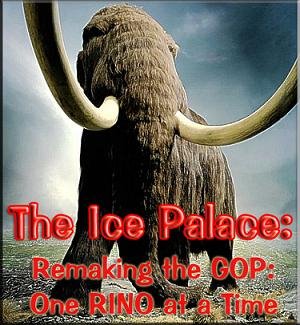AP and "Big Oil": The whole truth?
What writer Josef Hebert conveniently failed to add to the reporting was this reply by John Hofmeister, CEO of Shell Oil:"Where is the corporate conscience?" Sen. Dick Durbin, D-Ill., asked the top executives of the five largest U.S. oil companies.
It's all about economics, came the reply. Supply and demand. The company leaders tried to shift attention from motorists' anger over $4-a-gallon gasoline to a debate over new areas for drilling.
But senators at the Judiciary Committee hearing weren't having any of that. They wanted to press the executives about public anguish over paying $60 or more to fill up a car's gas tank.
"People we represent are hurting, the companies you represent are profiting," Sen. Patrick Leahy, D-Vt., told the executives. He said there's a "disconnect" between legitimate supply issues and the oil and gasoline prices motorists are seeing.
The executives, sitting shoulder to shoulder in the hearing room, said they understood people were hurting, but they tried to blunt the emotion with economic analysis.
Profits have been huge "in absolute terms," conceded J. Stephen Simon, executive vice president of Exxon Mobil Corp., but they "must be viewed in the context of the massive scale of our industry." And high earnings "in the current up cycle" are needed for investments in the long term, including when profits will be down.
"'Current up cycle,' that's a nice term when people can't afford to go to work" because gasoline is costing so much, replied Leahy with sarcasm.
"The fundamental laws of supply and demand are at work," said John Hofmeister, chairman of Shell Oil Co., acknowledging it is something the oil industry has been saying for some time and that the explanation may sound "repetitive and uninteresting."
Hofmeister was joined by executives of Exxon Mobil Corp., Chevron Corp., BP America Inc. and ConocoPhilips Co. Together the five companies earned $36 billion during the first three months of this year.
As the executives sought to explain their profits and why prices are so high, the global oil markets were moving into new, uncharted highs, touching $133 a barrel for the first time. The national average price of a gallon of gasoline hit $3.80, with $4 showing up in more places. Crude prices increased even more in late electronic trading Wednesday hitting $134 for the first time.
HOFMEISTER: In the United States, access to our own oil and gas resources has been limited for the last 30 years, prohibiting companies such as Shell from exploring and developing resources for the benefit of the American people. It is not a free market. According to the Department of the Interior, 62% of all on-shore federal lands are off limits to oil and gas developments, with restrictions applying to 92% of all federal lands. The Argonne National Laboratory did a report in 2004 that identified 40 specific federal policy areas that halt, limit, delay, or restrict natural gas projects. The problem of access can be solved in this country by the same government that has prohibited it. Congress could have chose to lift some or all of the current restrictions on exploration and production of oil and gas. Congress could provide national policy to reverse the persistent decline of domestically secure natural resource development.That, my dear readers, is the problem in a nutshell. Big Government is in the midst of bloviating, beating their chests and pointing their bony fingers of indignation at "Big Oil," when all the while the cause of and answer to the problem is waiting to be answered the next time they look in the mirror. And "Big Media" who is in cahoots with "Big Government" lacks the cajones to report that fact.
Surprise? I think not.















|